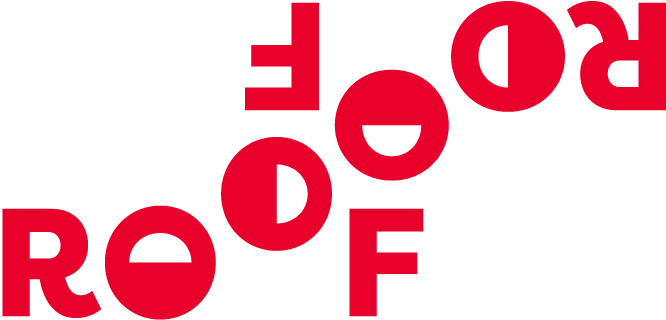
Jan 10, 2024 | Marketing, SEO, Web Design
Introduction to Building a Perfect Roofing Website
In today’s digital age, having a compelling online presence is crucial for any business, including those in the roofing industry. A well-designed website serves as the virtual front door to your business, helping you attract more customers, showcase your services, and establish credibility. This article will guide you through the essential tips and strategies to build an effective roofing website that not only looks great but also performs well.
Understanding the Importance of User Experience (UX)
User experience is a critical factor in the success of a website. A site that is easy to navigate, fast, and user-friendly can significantly enhance user satisfaction and increase the likelihood of converting visitors into customers. Ensure that your roofing website is designed with UX in mind, focusing on aspects such as logical navigation, fast load times, and mobile responsiveness.
Mobile Responsiveness
With more people using mobile devices to access the internet, your roofing website must perform seamlessly across all devices. A mobile-responsive design adjusts according to the screen size, ensuring that your content is accessible and readable on smartphones, tablets, and desktops.
Fast Load Times
Website speed is a vital UX and SEO factor. Slow-loading websites can frustrate users and increase bounce rates. Optimize images, leverage browser caching, and minimize HTTP requests to enhance your site’s loading speed.
SEO Strategies for Roofing Websites
Search Engine Optimization (SEO) is essential for making your roofing website visible to potential clients. Local SEO is particularly important in the roofing industry to target customers in specific regions.
Keyword Research
Conduct thorough keyword research to find terms that your potential customers are using to find roofing services. Tools like Google Keyword Planner can help you identify relevant keywords, including local terms (e.g., roof repair in [City Name]).
Local SEO
Optimize your website for local search by including your city or region’s name in your meta tags, content, and URLs. Register your business with Google My Business, and always maintain up-to-date contact information and operational hours.
Content is King
Quality content is vital for engaging visitors and improving SEO rankings. Your roofing website should provide valuable information that addresses common customer questions and showcases your expertise.
Blog Posts
Maintain a blog to share expert advice, tips, and industry news that can help homeowners make informed decisions. Regularly updating your blog also signals to search engines that your website is active, boosting your SEO efforts.
Before and After Galleries
Visual content can be incredibly persuasive. Include a gallery of before-and-after photos of your roofing projects to visually demonstrate the quality of your work and the transformation you can provide.
Social Proof and Testimonials
Testimonials and reviews are powerful tools for building trust and credibility. Include a dedicated testimonial section on your website where satisfied customers can share their experiences. If possible, incorporate a review management system to help collect and display customer feedback efficiently.
Integrating Social Media
Linking your social media profiles helps extend your reach and provides additional platforms for customer interaction. Embed social media feeds on your website to keep content dynamic and engaging, showing potential customers the active and responsive nature of your business.
Call to Action (CTA)
Every page on your roofing website should guide visitors towards a goal, whether it’s contacting you, requesting a quote, or simply downloading a guide on roof maintenance. Use clear, action-oriented CTAs like Request a Free Estimate prominently throughout your site to encourage user interaction and lead conversion.
Conclusion
Building the perfect roofing website requires attention to design, functionality, content, and SEO. By focusing on providing a great user experience, optimizing for local search, and actively engaging visitors through content and social proof, you can develop a website that not only attracts visitors but also converts them into customers. Remember, your website is an investment in your business’s future, so dedicate the necessary resources to ensure it represents your brand effectively.

Jan 2, 2024 | Industry News, Marketing, SEO, Web Design
Introduction to Roofing Marketing Agencies
In today’s competitive market, roofing companies are increasingly turning to specialized marketing agencies to help them stand out. A roofing marketing agency specializes in crafting tailored marketing strategies designed specifically for roofing businesses. These agencies understand the intricacies of the roofing industry, from seasonal demand fluctuations to the unique selling points of different roofing materials. With their expertise, they can elevate a brand, reaching more customers and securing more projects.
The Role of a Roofing Marketing Agency
A roofing marketing agency plays a crucial role in defining and implementing effective marketing strategies tailored for the roofing sector. Their services encompass a wide range of marketing aspects, from digital marketing to traditional advertising and everything in between.
Digital Marketing Services
Digital marketing is at the heart of what most roofing marketing agencies offer. This can include:
- Website Development and Optimization: Creating a professional, user-friendly website that performs well in search engine results.
- SEO (Search Engine Optimization): Optimizing content and HTML source code to increase a website’s visibility on search engines like Google.
- Social Media Marketing: Enhancing presence on platforms like Facebook, Twitter, and Instagram to engage with a broader audience.
- Email Marketing: Crafting targeted and personalized email campaigns to nurture leads and inform clients about services and promotions.
Traditional Advertising
Though digital marketing is prevalent, traditional methods still play a vital role, especially in local markets. Common traditional marketing tactics include:
- Direct Mail Campaigns: Sending flyers, postcards, and promotional materials directly to potential customers within a specific area.
- Radio and Local TV Ads: Establishing a brand presence in a community by appearing on local media outlets.
- Outdoor Advertising: Utilizing billboards and signage to catch the eye of local homeowners and businesses potentially in need of roofing services.
Benefits of Hiring a Roofing Marketing Agency
Employing a roofing marketing agency comes with multiple benefits that can lead to substantial growth for a roofing business. Key benefits include:
Expertise in the Roofing Industry
These agencies have a deep understanding of the roofing market and customer base, which is vital in crafting effective messages and campaigns that resonate with target audiences.
Cost-Effectiveness
Outsourcing marketing efforts to a specialized agency can be more cost-effective than managing in-house teams, especially when it comes to needing a wide range of skills that might otherwise require multiple employees or contractors.
Access to Advanced Tools and Analytics
Marketing agencies have access to advanced tools and technologies that many roofing companies might not invest in independently. These tools can track campaign performance, monitor SEO progress, and streamline other marketing efforts efficiently.
Scalability
With a marketing agency, roofing companies can scale their marketing efforts up or down depending on their budget and business goals. This flexibility helps manage expenses while still maximizing outreach and engagement.
Choosing the Right Roofing Marketing Agency
Selecting the appropriate marketing agency is crucial. It’s important to consider their experience within the industry, their portfolio of past work, and their understanding of the roofing business’s specific needs. Discussion with potential agencies should include clarity on communications, reporting, cost structuring, and the overall strategic approach they would employ.
Conclusion
Hiring a roofing marketing agency can provide a robust path to enlarging your customer base, increasing sales, and building a stronger brand. By leveraging specialized expertise and advanced marketing techniques, roofing companies can achieve greater market penetration and sustained business growth. In an era where marketing is increasingly complex and critical, partnering with the right agency can be a significant strategic advantage.

May 3, 2023 | Industry News, Marketing, SEO, Web Design
Introduction to Contractor Marketing Services
In today’s competitive business environment, contractors across various industries such as construction, electrical, plumbing, and HVAC, face the challenge of not only delivering high-quality services but also effectively marketing their businesses. The right marketing strategies can dramatically increase visibility, appeal to potential customers, and boost profitability. This article explores top contractor marketing services that can help contractors strengthen their market presence and achieve business growth.
Understanding Digital Marketing for Contractors
Marketing for contractors has evolved significantly over the last decade with digital marketing becoming increasingly significant. Digital marketing for contractors involves various strategies aimed at reaching potential customers through digital platforms such as search engines, social media, email, and websites. A tailored digital marketing approach can help contractors not only survive but thrive in this competitive market.
SEO (Search Engine Optimization)
SEO is a crucial element of digital marketing that involves optimizing a website to rank higher in search engine results, making it easier for potential customers to find a contractor’s business online. For contractors, local SEO is particularly important as it optimizes visibility for local searches, which can directly lead to job opportunities and increased revenue. Effective SEO strategies include using relevant keywords, optimizing website content and structure, building backlinks, and ensuring the website is mobile-friendly.
PPC (Pay-Per-Click) Advertising
PPC is an internet advertising model used to drive traffic to websites, where an advertiser pays a publisher (typically a search engine, website owner, or a network of websites) when the ad is clicked. PPC campaigns can be highly targeted, offering immediate results that are easy to measure and track. They are particularly useful for contractors as they can target potential customers who are actively searching for specific services in real-time.
Social Media Marketing
Social media platforms like Facebook, Instagram, and LinkedIn offer powerful tools for building brand awareness and engagement. Contractors can use these platforms to showcase their work, share customer testimonials, provide helpful DIY tips, and communicate with potential and existing customers. Social media ads can also be highly targeted based on geographic location, demographics, interests, and behaviors, making them a cost-effective way to increase visibility and generate leads.
Email Marketing
Email marketing remains one of the most efficient ways to maintain relationships with existing customers and reach new ones. Contractors can use email newsletters to share important updates, promotions, new services, or tips that homeowners and businesses might find useful. Segmenting email lists based on customer interests or past projects can lead to higher engagement rates and conversion.
Website Design and Optimization
A professional, user-friendly website serves as the base of a contractor’s online presence. An optimized website must be visually appealing, mobile-responsive, and easy to navigate. It should clearly communicate what services are offered, where they are offered, and how potential customers can request these services. Additionally, integrating strong calls-to-action (CTAs) can guide visitors towards engaging with the contractor’s business, whether through filling out a contact form, signing up for a newsletter, or making a phone call.
Reputation Management and Online Reviews
For contractors, reputation can be everything. Many potential customers will research online reviews and testimonials before deciding to hire a contractor. Actively managing these reviews by responding to feedback, addressing concerns in a professional manner, and encouraging satisfied customers to leave positive reviews can significantly influence public perception and lead conversion rates.
Case Studies and Content Marketing
Showing off past projects through detailed case studies or portfolio galleries can significantly enhance a contractor’s credibility and attract higher-quality leads. Content marketing can also play a role here by demonstrating expertise through in-depth blog posts, videos, and infographics that help potential customers solve problems or learn more about common industry issues.
Summary
Contractor marketing services are essential tools in a contractor’s arsenal for attracting and retaining customers. By leveraging SEO, PPC, social media marketing, email marketing, and effective website design, contractors can enhance their online presence, build trust with their audience, and ultimately, grow their business more effectively. Finally, maintaining a strong reputation online and showcasing skills through content marketing are invaluable tactics for long-term success.



